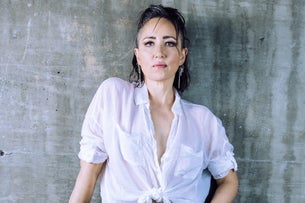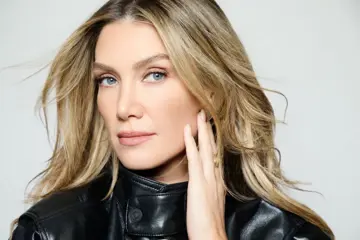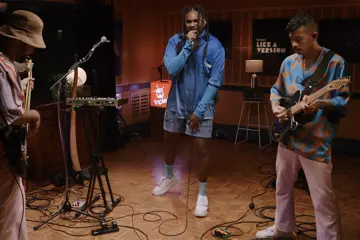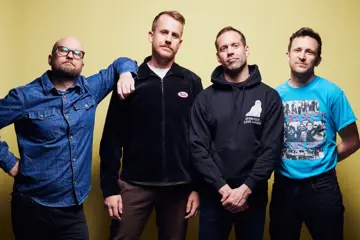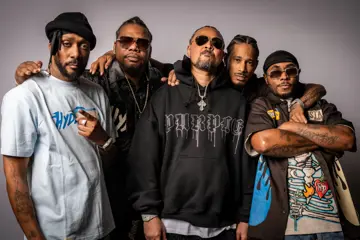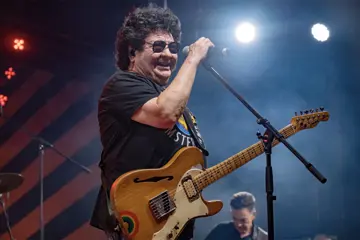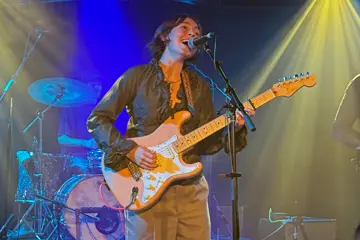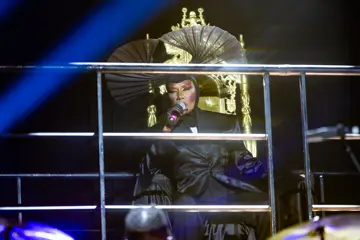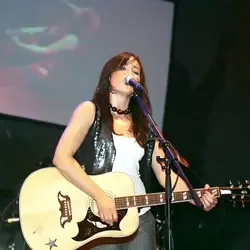 KT Tunstall
KT TunstallKT Tunstall was surprised to emerge from one of the toughest years of her life with the best album she reckons she's ever made. “The whole thing was very unexpected from the very beginning. I wasn't even planning on making a record,” says the Scottish singer-songwriter. “It was just that I'd met Howe Gelb from Giant Sand in February of last year, and Howe said to me, 'Come out to Arizona and let's do some recording'. That really was what it was. I didn't go out there thinking, 'Right! I'm going to make an album'.”
In fact at that point, she didn't even have any material, but in the two months between meeting Gelb and visiting him in Tucson, Tunstall wrote the nine songs that comprise the distinct first half of what ended up being Invisible Empire // Crescent Moon, one of the most critically acclaimed albums of her career.
She spent ten freeing days recording in Tuscon, and recalls that writing and recording happened quickly. “The songs came thick and fast, and recording them, I mean, Made Of Glass was done in one take, it took four minutes to record. It was just good musicianship all 'round and solid songs that came out of nowhere.”
That was in April 2012. Over the next few months, Tunstall's life turned upside down completely. Over the course of one Northern summer, her father died and her marriage broke up. She returned to Arizona “almost a different person”, relieved to be returning to the peace of the desert. “The desert out there is an incredibly meditative, restorative, peaceful place and I took a lot of solace from that. I really enjoyed the landscape, it didn't require anything from me. You can just be out there very easily. It's beautiful, it's warm and it's very, very slow!” she laughs. The desert seems to infuse the sound of the record too, which is the most mellow, country-sounding work Tunstall has ever done.
Don't miss a beat with our FREE daily newsletter
Tunstall was surprised at the way the two halves of the record sounded, considering the circumstances of their creation. “It was, weirdly enough, the first half that felt quite insular and brooding and questioning and melancholic, and the second half was really very hopeful and, for me, sounded more widescreen and cinematic.”
Looking back to that difficult time only a year ago, Tunstall is glad to have something to show for it. “What was so great about it, and what made me eternally grateful about being a musician, was that these massive tectonic shifts in your life that are always painful and always provide you with massive amounts of chaos, and force you to change whether you want to or not – I was just so grateful that something so solid came out of it. And something which I think is probably the best album I've made, I just totally didn't expect. And it was by far the easiest record I've ever made, weirdly. I still find it kind of baffling that at the end of one of the craziest and most difficult years of my life I have an album that I made. And not only was it very healing to make, it didn't even come out as a horribly depressing piece of work, which it could have done.”
And performing the songs has been okay too, she says: “I think it's the same as my experience with any song I've written, that once you play it for people you give it away. What's been really good about it is basically lots of the songs on the album are just acknowledging that human beings go through shit, and everybody goes through shit. It's one of the things that I wish us as human beings were better at is realising that sense of loneliness is just so misguided because there's probably 25 million people on the planet going through almost exactly the same thing as you whenever you're going through it. The overwhelming feeling about sharing these songs is to just try and activate that connection with people. This record is about what happens to humans through life. “


